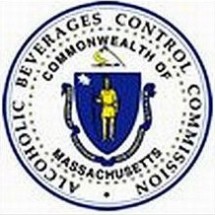Law Offices of John P. Connell, P.C.: On August 26, 2015, the Massachusetts Alcoholic Beverages Control Commission (“ABCC”) issued a Memorandum On License Application Forms . Copy of the Memorandum can be found here.
Under these new guidelines, in an effort to “streamline the retail alcoholic beverages application process,” the ABCC has now announced a few significant changes in policy that will alleviate some of the frustration both applicants and their counsel have had to endure when it comes to “proving” the source of funds to be invested in a project, and who must me disclosed and approved as having a “beneficial interest” in a proposed license. While specific mention is made in the ABCC’s Memorandum to the “retail” license process – and the form references made within the Memorandum relate to “retail” license application forms – it is presumed and seems evident from some (but not all) of the updated state license application forms (such as for breweries, distilleries and wholesale licenses) that the announced changes in policy also relate to “non-retail” licenses as well.
Traditionally, the ABCC has required full disclosure (including signed CORI Forms and/or completed Personal Information Forms) from not only shareholders or members of the entity applying for a liquor license, but also such individuals who were considered having an “indirect beneficial interest” in the license such as private lenders, landlords that received “percentage rent” and even those listed with the Secretary of Commonwealth as having “signing authority” for the proposed licensee entity. Pursuant to the Memorandum, the following individuals will no longer have to be listed in the application forms as having a “direct or indirect beneficial interest” in the proposed entity merely because they are:
- Secretary of Commonwealth, Corporations Division (SOC) Signatories;
- Those people guaranteeing financing for the applicant (and presumably those guaranteeing a lease for the applicant); and
- An individual lender to either a shareholder or the entity itself strictly by nature of the loan.
Additionally, landlords that will receive “percentage rent” from the proposed licensed entity’s sale of alcoholic beverages will still have to be listed as having a “financial interest” but they will henceforth be relieved from having to submit a CORI Form or a Personal Information Form, which many landlord’s resisted having to do.
Perhaps more significantly, however, investors in the proposed licensed entity will now be relieved from having to submit three (3) months of bank statements to prove the source of the funds they claimed would be invested in the project if they are investing is less than $50,000.00. Traditionally, having to show three (3) consecutive months of bank balances in an amount equal to or greater than the amount of the claimed investment has always bogged the process down in that many investors have already spent funds on the project or have been doing so for months or have been using cash outside of their accounts so as to make it appear that they did not have the static amount of the total investment sitting in a bank account (or multiple accounts) for three (3) consecutive months. The new $50,000.00 threshold for having to produce these records should expedite most smaller retail transactions.
There are other points in the Memorandum that should also expedite the application process. It should be noted that all these revisions in policy run in favor of “streamlining” a process by an agency that has been, in the past, resistant to such efforts and shows an ongoing effort to recognize the evolution of those principles which underpin many of the regulatory laws the agency is required to uphold.

